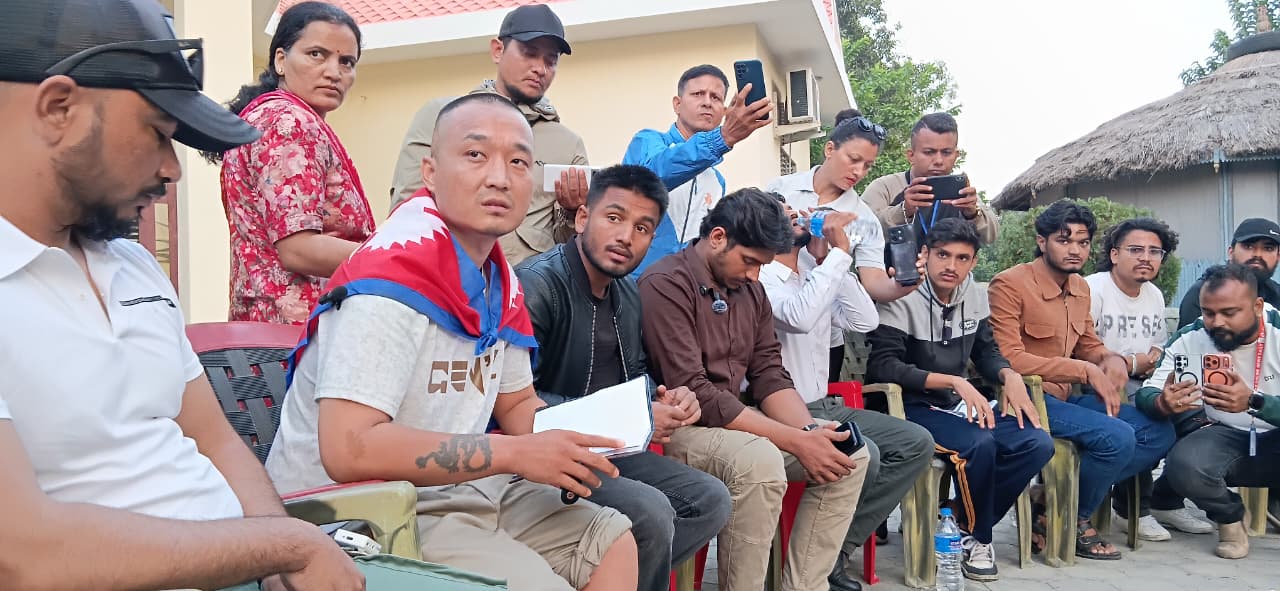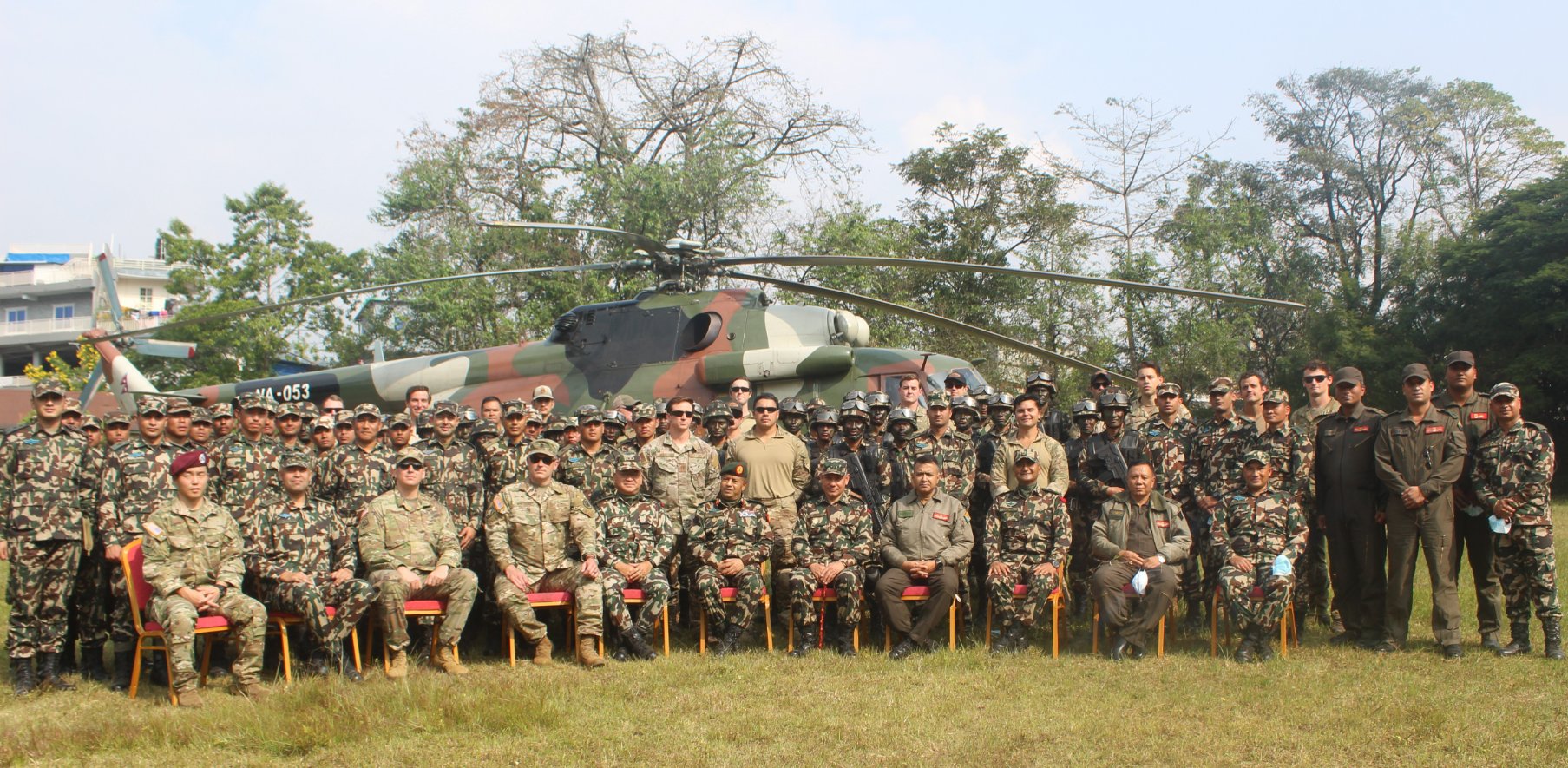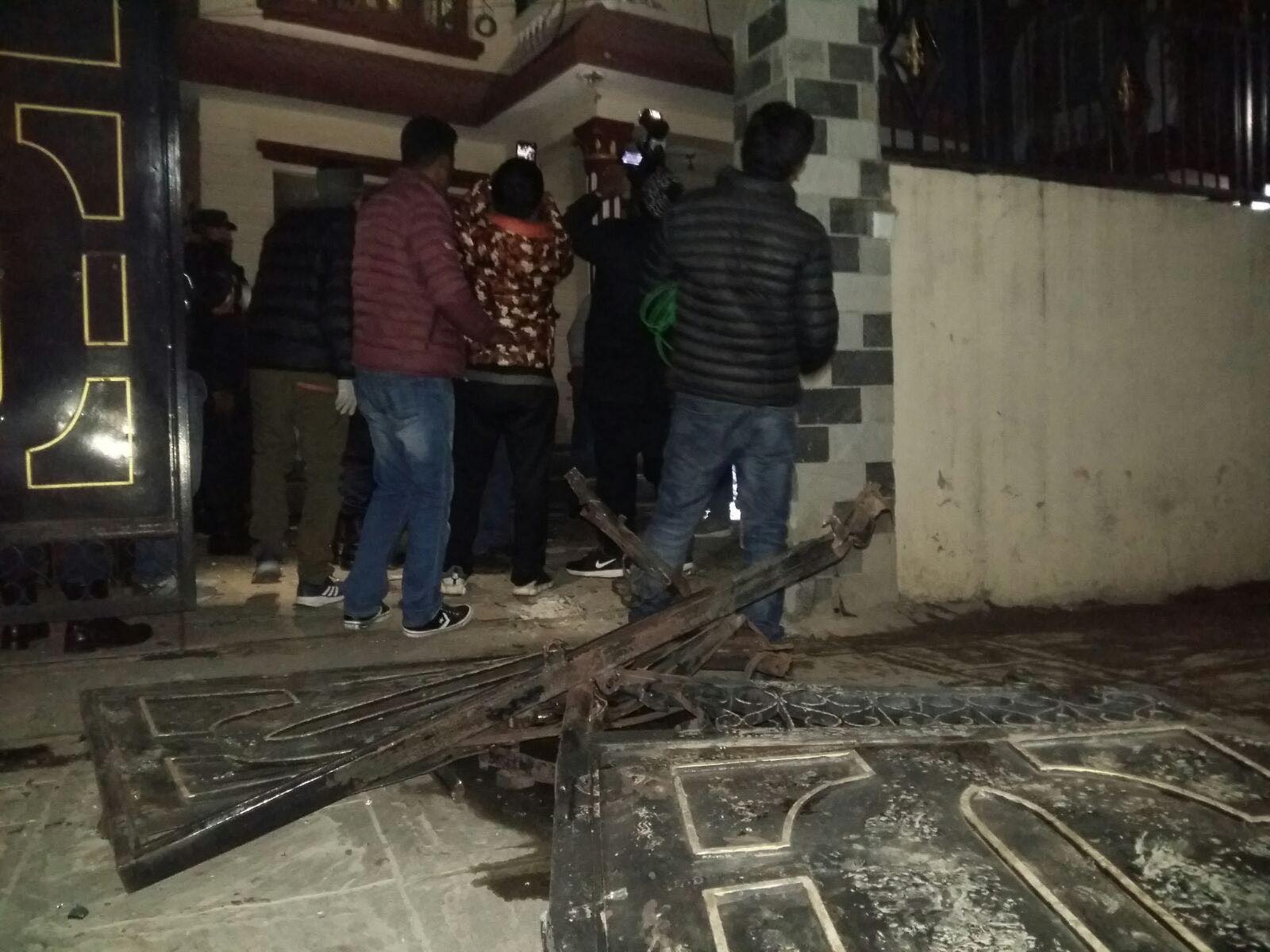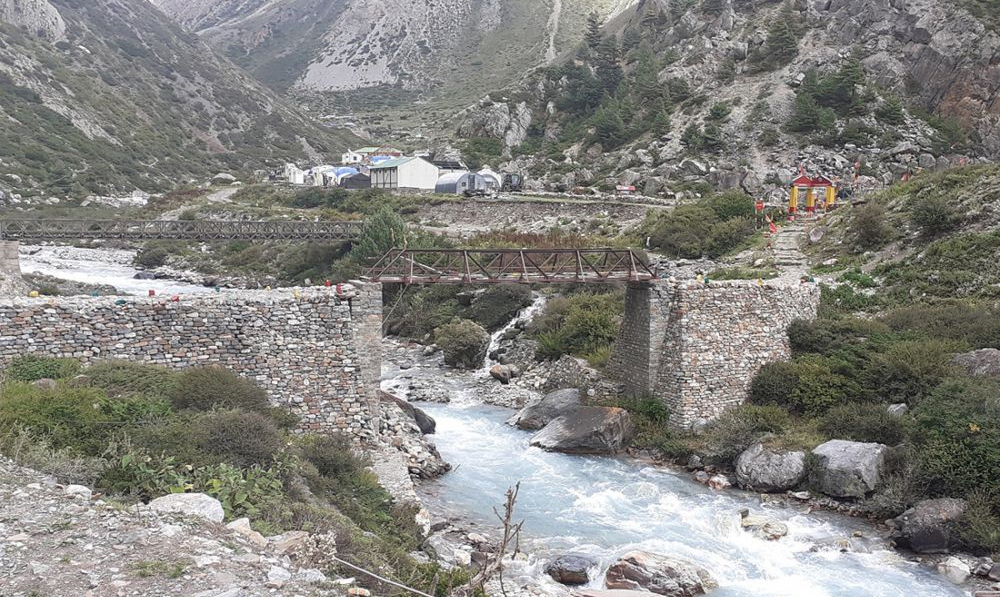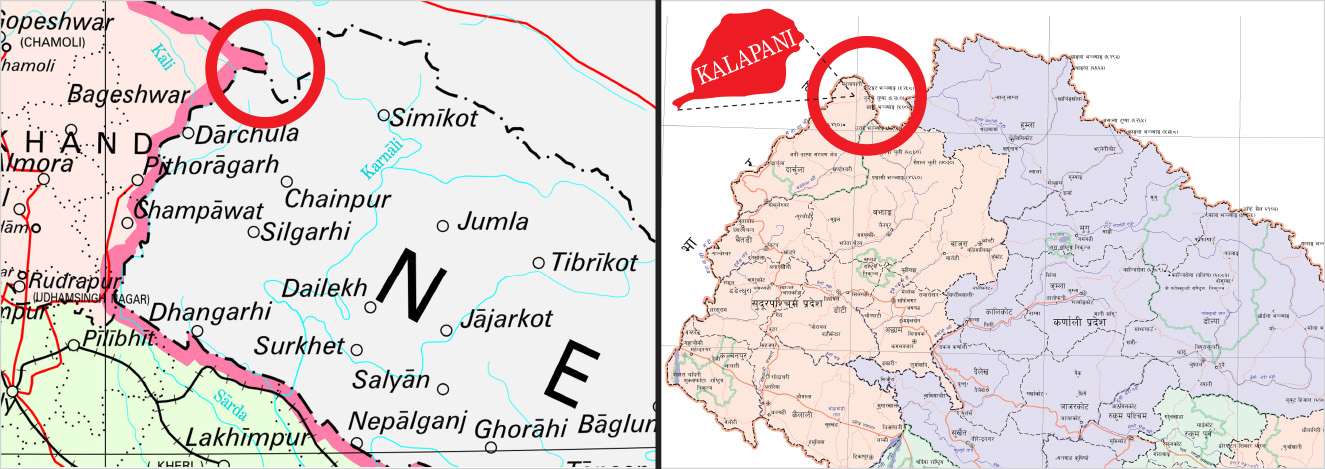National Security
Provinces say federal government is in bid to control provincial security operations
Police adjustment bill, passed by a House committee, is yet another attempt to centralise power, provincial ministers say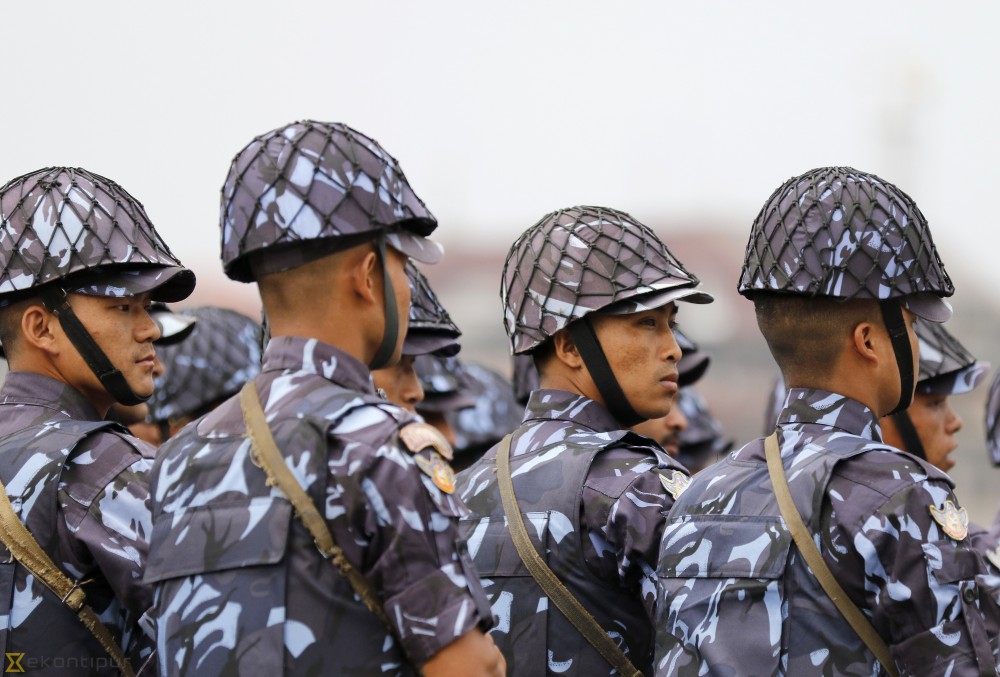
Tika R Pradhan
The bill on adjustment of police in the provinces, which has been finalised by a parliamentary committee and is expected to be endorsed by the federal parliament soon, has invited criticism from provincial governments.
Registered at the House of Representatives on March 13, the bill on adjusting Nepal Police and Provincial Police was endorsed by the parliamentary State Affairs and Good Governance on Sunday.
As it was endorsed unanimously by the committee, the bill is set to pass both Houses of federal parliament without any hindrance.
But provincial ministers have expressed serious concerns over the provisions that allow the federal government to mobilise provincial police chief--Deputy Inspector General. Besides, Senior Superintendent of Police and Superintendent of Police will also be under the federal government until a provincial police official appointed by the provincial government is promoted to the post of Senior Superintendent of Police.
The provinces have also been objecting to the federal government’s plan to give continuation to Chief District Officers as the federal government’s contact persons.
The provincial ministers believe that the federal government is bent on keeping CDOs as the Home Ministry’s liaison officials.
“Who will mobilise the DIGs, SPs and SSPs? The federal government?” said Shalikram Jamarkattel, internal affairs and law minister of Province 3. “This is nothing but a ploy to keep the CDOs in districts and empower them, thereby robbing the provinces of their right.”
Province 2 had earlier warned that it would appoint its own CDOs in its eight districts. Janakpur has even prepared a bill provisioning the province’s own “district administrators”--a position parallel to CDOs, in a move that could further escalate its conflict with the federal government.
“We have already registered the bill at the provincial assembly. It will be endorsed as soon as the ongoing discussion on the budget is over,” Gyanendra Yadav, internal affairs and law minister of Province 2, told the Post.
The provinces have claimed that the lawmakers failed to understand the intention of the federal government.
“It looks like lawmakers [of the federal parliament] did not understand what the federal government was trying to do through this police adjustment bill,” Jamarkattel told the Post. “Earlier, during discussions with us, they had said they would lobby to address the demands of provincial governments.”
According to Jamarkattel, lawmakers were not aware of the fact that the federal government through the police adjustment bill was trying to pave the way to keep chief district officers intact so that it could directly mobilise senior superintendent of police and superintendent of police through them.
Provincial governments have also maintained that there must not be a
dual chain of command and the whole security arrangements of the provinces must be awarded to them as per the constitutional provision.
The constitution has enlisted ‘peace and security’ as provincial governments’ explicit authority.
“I don’t know what the federal parliament is preparing. All I know is that the police administration of provinces must be under the provincial governments,” said Yadav. “The federal government must act according to the constitution.”
With the issue becoming more complicated, the provinces are considering challenging the federal government in court.
The internal affairs and law ministers of the seven provinces, according to Jamarkattel, are considering moving the court to challenge the federal government’s attempt to impose its control through legal frameworks.
“We will hold a discussion among internal affairs ministers of all the provinces before deciding to seek a legal remedy,” Jamarkattel told the Post.
Internal affairs and law minister of Province 2 Yadav said they would have no option than to seek legal measures.
“Province 2 will challenge the federal government in court,” he said. “The federal government cannot draft laws contradictory to the constitutional provisions.”
However, lawmakers representing the parliamentary committee said the adjustment bill does not talk about the CDOs.
“We will try to find ways to address the concerns of the provinces regarding chief district officers while discussing another bill on police mobilisation bill, which is also currently in Parliament,” said Rekha Sharma, a lawmaker representing the ruling Nepal Communist Party (NCP) in the parliamentary committee. “We made a lot of corrections to strengthen the provinces as per their demands, but all of their concerns could not be addressed.”
Internal affairs and law minister of Karnali Province Naresh Bhandari said the dual chain of command for any force won’t be effective--it would rather weaken the entire security apparatus.
“Peace and security related issues in provinces fall under the jurisdiction of provincial governments. And we have been fighting to ensure this constitutional right,” said Bhandari.
Yadav agreed.
“If there is a dual chain of command,” he said, “it could hugely disrupt law and order in the provinces.
***
What do you think?
Dear reader, we’d like to hear from you. We regularly publish letters to the editor on contemporary issues or direct responses to something the Post has recently published. Please send your letters to [email protected] with "Letter to the Editor" in the subject line. Please include your name, location, and a contact address so one of our editors can reach out to you.




 23.12°C Kathmandu
23.12°C Kathmandu
